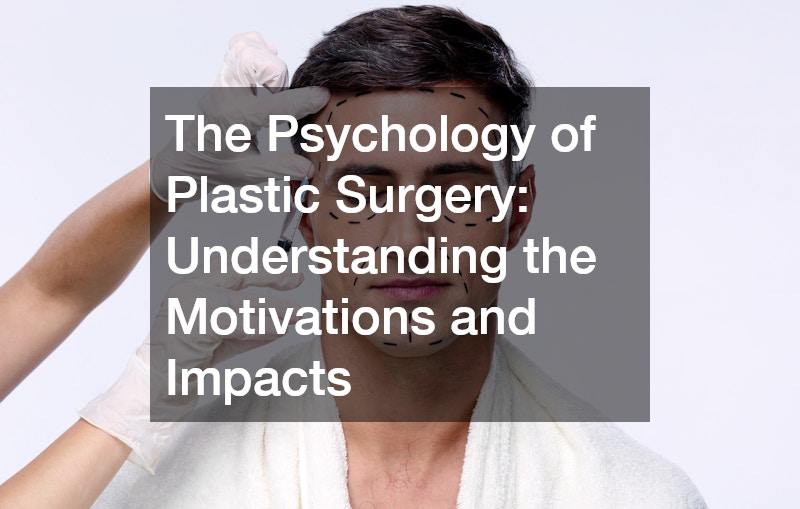Plastic surgery, once considered a luxury for the elite, has become increasingly accessible and mainstream. Understanding the psychology behind why people choose to undergo these procedures reveals a complex interplay of self-perception, societal influences, and emotional well-being.
Motivations for Plastic Surgery
The reasons individuals opt for plastic surgery are varied and deeply personal. For many, the desire stems from a quest for improved self-esteem. Physical appearance significantly impacts how individuals perceive themselves and how they believe others perceive them. Correcting a perceived flaw can lead to a boost in confidence, fostering a positive self-image.
Societal pressures also play a critical role. In a culture that often equates beauty with success and happiness, the pursuit of aesthetic enhancement becomes a way to align with societal ideals. The influence of social media exacerbates this, with constant exposure to curated images and the seeming perfection of influencers and celebrities.
Another motivation is the desire to combat the visible signs of aging. Many seek procedures to maintain a youthful appearance, feeling that it helps them stay competitive in both personal and professional arenas.
Impacts of Plastic Surgery
The impacts of plastic surgery are multifaceted. On a positive note, successful procedures can lead to significant improvements in mental health. Increased satisfaction with one’s appearance can reduce anxiety, depression, and body dysmorphic disorder symptoms, contributing to overall well-being.
However, the psychological impact can also be negative if expectations are unrealistic or if the outcome does not meet the desired image. Dissatisfaction with results can exacerbate self-esteem issues, leading to further psychological distress. It is crucial for individuals to have realistic expectations and to seek procedures for themselves rather than to meet external pressures.
In conclusion, the motivations and impacts of plastic surgery are deeply intertwined with psychological factors. Understanding these elements helps ensure that individuals make informed, healthy decisions about their bodies and mental well-being.
.





